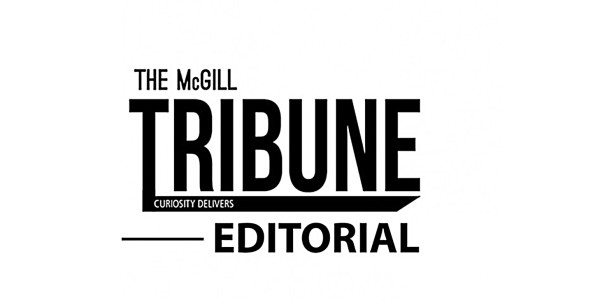This month marks the beginning of a new era at McGill. After a 10-year term under Heather Munroe-Blum—punctuated at times by conflict with portions of the university community—Suzanne Fortier, most recently of the National Sciences and Engineering Research Council of Canada (NSERC), will take over as Principal and Vice-Chancellor of the university.
Principal Fortier faces major challenges in her first year on the job. Chief among these is the continued budgetary uncertainty facing McGill and all universities in the province. Last December, the provincial government ordered universities to make a collective $124 million budget cut by this past April, a cut that took $19.1 million out of McGill’s operating budget for that year. Several months later, the provincial government imposed another set of cuts totaling $19 million over this coming year.
In the final months of last year, we began to see the tangible effects of these cuts across our campus like a row of toppling dominoes. The administration asked a number of campus unions to accept a wage freeze, began a voluntary retirement program, and instituted a hiring freeze. The bookstore reduced hours, and in perhaps the highest-profile academic realignment to happen in the wake of the provincial cuts, the Faculty of Arts announced that 100 courses would be eliminated from the program. While the administration claimed at the time, with some credibility, that these cuts were under consideration since September of last year—before the provincial cuts came to light—it is hard to believe that such a severe budgetary shock did not impact the university’s decision-making. To compound the situation, relocations of several libraries were announced at the end of the past year.
This drumbeat of cutbacks and retrenchment has severely impacted student morale. Students return to campus this year with uncertainty as to whether classes they require for their programs will even be taught, or if academic resources they rely on will be there for them. Considering McGill’s drop from 25th to 31st place in the Times Higher Education rankings earlier this year, Fortier will be entering a climate in which McGill’s reputation as Canada’s leading university—let alone a world-class institution—is at stake.
From what is known about our university’s budgetary situation, there is little impact Fortier can have to actually reduce or reverse the budget cuts, aside from the bully pulpit in government negotiations that comes with leading the province’s largest English language university. The real question is not rolling back the cuts, but in delivering them in the least painful way. Chief to achieving those aims are continued communication, engagement, and transparency with students.
While there are certainly many things to be said about the student-administration conflicts over the past few years, it is undeniable that there was a substantial lack of dialogue with students on key issues. The example most emblematic of this was the Memorandum of Agreement the university signed with the Students’ Society of McGill University (SSMU) in 2011, the much-criticized document that forced numerous student clubs and services at the university to adjust their names in order to refer less directly to the university’s name. For example, “TV McGill” was changed to “Student Television at McGill University.” Strong-arming SSMU into making this agreement, despite vigorous criticisms from key stakeholders—the students—was just one example of the previous administration’s lack of regard for student input in key decisions.
A more recent case of this lack of consultation with students was the Protocol Regarding Demonstrations, Protests, and Occupations, proposed as a response to the occupation of the James Administration Building in February 2012, a document this newspaper has repeatedly editorialized against as limiting free expression on campus. In a drawn-out process that only concluded earlier this year, the administration held a series of “Open Forums” with students; these were marked by low attendance resulting from minimal public notice, as well as uncertainty as to how this feedback would even be reflected by the administration.
There are numerous other examples we could outline here, but the takeaway is clear. For Fortier to mend fences with the student community, improved communication and engagement is paramount. Considering Fortier’s term has yet to begin, it is too early to pass any real judgement. However, if we are to infer from her visit to the Open Air Pub (OAP) last week, a gesture far more indicative of an interest in student interaction than Munroe-Blum’s barbecue of last September, there might be positive movement in student-admin relations. The editorial board is hopeful that such outreach efforts will continue throughout Fotier’s tenure.
The future at McGill is, at best, highly uncertain. What is clear is that to lead the university through the challenges ahead, Fortier will need to display as much tact as decisiveness, and a willingness to meaningfully engage with students, something that was at times lacking from her predecessor. Going forward, Fortier would do well to remember that students don’t just want to be ‘consulted,’ the administration’s phrase of late. They want to be taken seriously as the key stakeholders in the university that they are.








